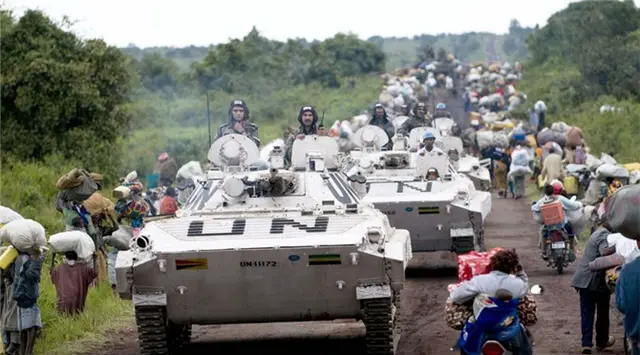UN peacekeeping operations are faced with multiple challenges and are in need of improvement to better fulfill their mandate, said Herve Ladsous, UN under-secretary-general for peacekeeping operations.
One of the main challenges is the problem of indiscipline among some UN peacekeepers, in particular those involved in sexual abuse and exploitation cases, Ladsous told Xinhua in a recent interview.
"We have to bring to light all these cases," said Ladsous, stressing that those who committed such crimes must be brought to justice.
Last year, sexual abuse allegations against some peacekeepers who were sent to protect civilians but instead traded sex for money and sexually abused minors made headlines.
According to UN recent update on the issue, so far in 2016, the number of allegations recorded against peacekeeping and special political missions is 44, and 39 of them involve uniformed personnel.
Ladsous said the troop contributing countries bear the major responsibility to investigate the allegations and to bring those responsible to justice since the UN has no power to punish them.
"What we would like to see is that a tribunal is organized in the country where the allegations took place," he added, saying on-site court martial proceedings shall happen more systematically.
Ladsous also said he has suggested taking DNA samples from every peacekeeper that joins a peacekeeping mission, so it will be easier to match those samples once there are accusations of rape.
"If the soldiers and policemen are really aware of it, I think that will deter them a lot from abusing the trust of the people in such a lamentable way," he said.
Another main challenge is that UN peacekeeping missions are operating in countries where the level of threats is very high, Ladsous said.
He recalled the recent terrorist attack in northern Mali which killed six UN peacekeepers, saying some jihadist groups have designated the UN missions as a target.
"We are asked to step in when the political process is still quite weak, so that means many actors are trying to play a game often at our expense," he noted.
Besides, Ladsous said some troop contributing countries bring in people who don't have a sufficient level of equipment or don't receive appropriate training, "so we have to compensate for that."
Speaking of peacekeeping reforms, Ladsous said a general philosophy is to deploy peacekeeping operations in support of a political solution, to improve their performance, and to improve partnerships with troop-contributing countries as well as host countries.
Cooperation with China
"China now has become over recent years a very important contributor," said Ladsous.
He noted that China is now the second largest financial contributor to UN peacekeeping and also the largest troop contributor among the five permanent members of the UN Security Council.
"Chinese units are very well-equipped and are well-trained," he said, adding that Chinese peacekeepers are well-prepared for the tasks and have a good sense of discipline.
Ladsous said that in the future, the UN can work with China on peacekeeper training and on bringing in modern equipment to peacekeeping operations.
Ladsous said he is going to pay a four-day visit to China in early June at the invitation of the Chinese government to open a training course for UN diplomats.
He said that also on his agenda is the implementation of China's pledge made in last September to build a peacekeeping standby force of 8,000 troops.
(APD)
 简体中文
简体中文





